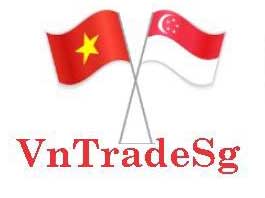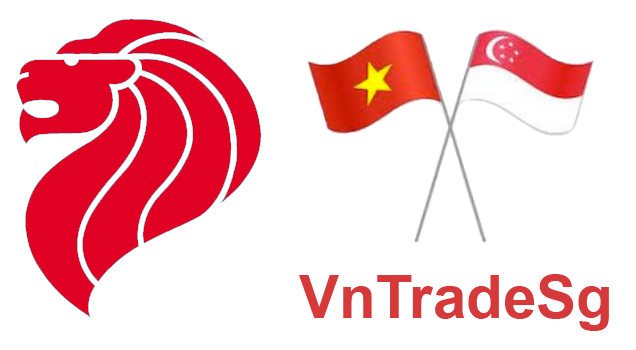The Ministry of Industry and Trade has proposed the Prime Minister to direct the Ministry of Finance and relevant agencies on the basis of balancing the State budget revenue and expenditure targets in 2020 and submitting plans to the Government for reporting to the National Assembly and the Commission. The Standing Committee of the National Assembly considered some tax support solutions for industrial enterprises in the textile and apparel industries; shoe leather; production and assembly of automobiles.
Worried over output
The Ministry of Industry and Trade has spoken to the Prime Minister on the task of reviewing and assessing the impact of acute respiratory infections caused by the new strain of coronavirus (Covid-19) on domestic industries.
According to the Ministry of Industry and Trade, the Covid-19 epidemic affected domestic production in two aspects, includingthe supply of imported raw materials for production and the consumption market.
So far, with the recovery of production from China and some other countries, the supply of imported raw and auxiliary materials may not be a serious problem for manufacturing enterprises in the second quarter and the remaining quarters of 2020 as previously forecast.
Meanwhile, the Ministry of Industry and Trade emphasized that industrial production activities in the comingquarters are expected to be greatly affected by the decline in domestic and global consumption markets as Covid-19 is increasingly spreading (especially to the US and European markets).
By the end of March 2020, the Covid-19 epidemic breaking out in Europe and the United States has caused these countries to apply strict measures to restrict travel and crowds.
This will directly affect Vietnam’s key export industries, such as electronics, textiles, footwear and woodwork. The production capacity of these industries is invested far beyond domestic demand, mainly towards foreign markets, especially the US and European markets.
“If export orders plummet in the future, businesses will not have cash flow to turn around capital, cover costs, pay bank interest, factory depreciation, or pay workers. They will not be able to maintain operations,”said the Ministry of Industry and Trade.
Analyzing specific cases with the textile and footwear industry, according to the Ministry of Industry and Trade, these are Vietnam’s key export industries (accounting for more than 23% of total exports). These industries only consume about 10% of the domestic production value – the remaining 90% is exported.
Therefore, the decline in demand of the US and European markets will greatly impact the total export turnover of Vietnam (US and European markets respectively account for about 45% and 18% of export turnover of garment and textile exports; about and 36% and 27% of Vietnam’s footwear export turnover).
Expectation of more tax and fee priorities
In order to contribute to solving difficulties for industrial production, the Ministry of Industry and Trade proposed the Prime Minister to direct more specific support solutions for enterprises operating in the following industries: manufacturing and assembling cars; production of iron and steel; producing electronic products, computers; production of cotton and fiber; weaving, dyeing and finishing of fabric; producing costumes; producing leather products; producing shoes; production of key mechanical products; and production of supporting industry products.
For example, in terms of support packages, under the direction of the Government and the State Bank of Vietnam, credit institutions are actively offering interest rate support packages, reducing lending rates from 0.5% – 1.0% compared to the previous agreement.
However, the actual conditions for joining these credit packages are very complicated and the interest rate reduction as above is still low, not really a lever to promote development, so direct tools are requiredfrom the Government and the State Bank to support businesses.
With the above analysis, the Ministry of Industry and Trade said that the State Bank of Vietnam should have specific credit packages to support businesses in difficult times. For example,lending with low interest rates and extending interest payment time for customers.
In particular, in the report to the Prime Minister, the Ministry of Industry and Trade details quite a lot of incentives and support on taxation fees for some specific industries.
The Ministry proposed to the Prime Minister to direct the Ministry of Finance and relevant agencies on the basis of balancing the State budget revenue and expenditure targets in 2020, and submitting a plan to the Government to report to the National Assembly and the Standing Committee, the National Assembly Department considers a number of tax support solutions for industrial enterprises in the textile, footwear, auto assembly and manufacturing industries; exploiting and processing minerals.
Specifically, for the mining and processing industry,enterprises are allowed to extend the time for paying taxes, fees, including environmental protection fees, charges for granting mineral rights, collecting taxes of enterprises, personal income tax for employees working in enterprises.
For the automobile manufacturing and assembling industry: this sector are allow toextend the time limit for special consumption tax payment, corporate income tax and value added tax till the end of the first quarter of 2021; 50% reduction of registration fee for customers who buy cars manufactured and assembled in the country by the end of 2020 to stimulate consumer demand.
For the textile and footwear industry,it is allowed to extend the time limit for paying corporate income tax in 2019 and 2020; delaying the payment of value-added tax until the end of the fourth quarter of 2020; extend, exempt, reduce land rent, industrial park infrastructure fee, waste water treatment fee in the time the plant stops operating due to epidemics.
ByThanh Nguyen/Bui Diep
















